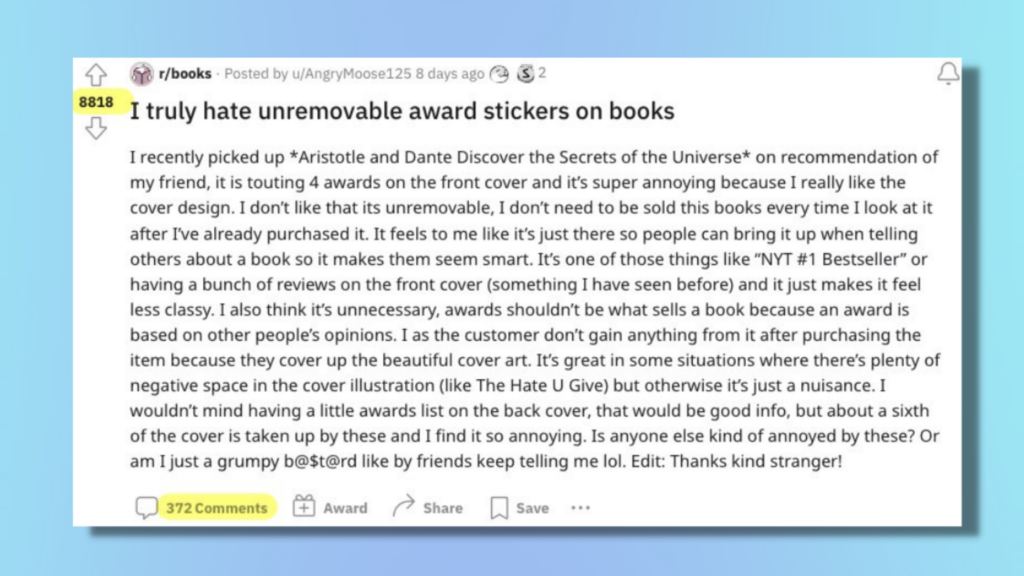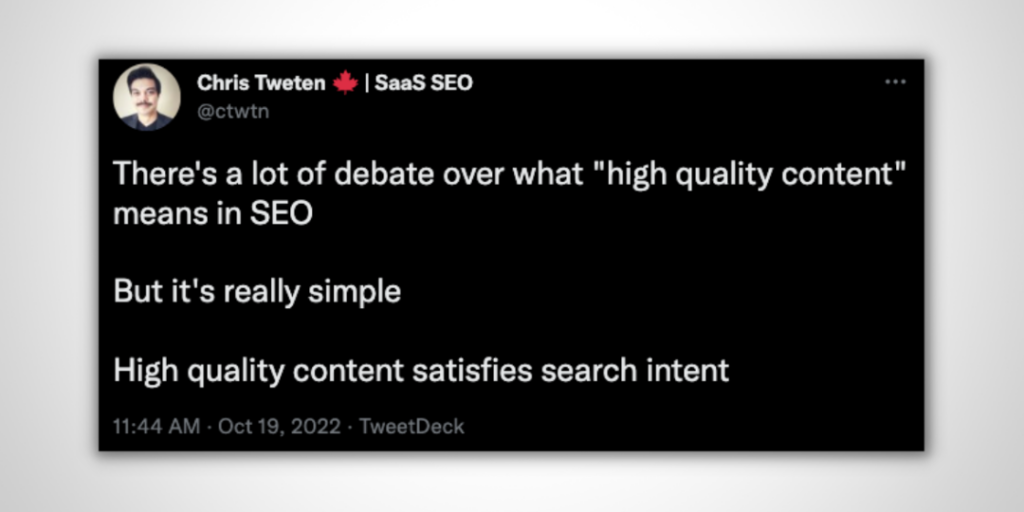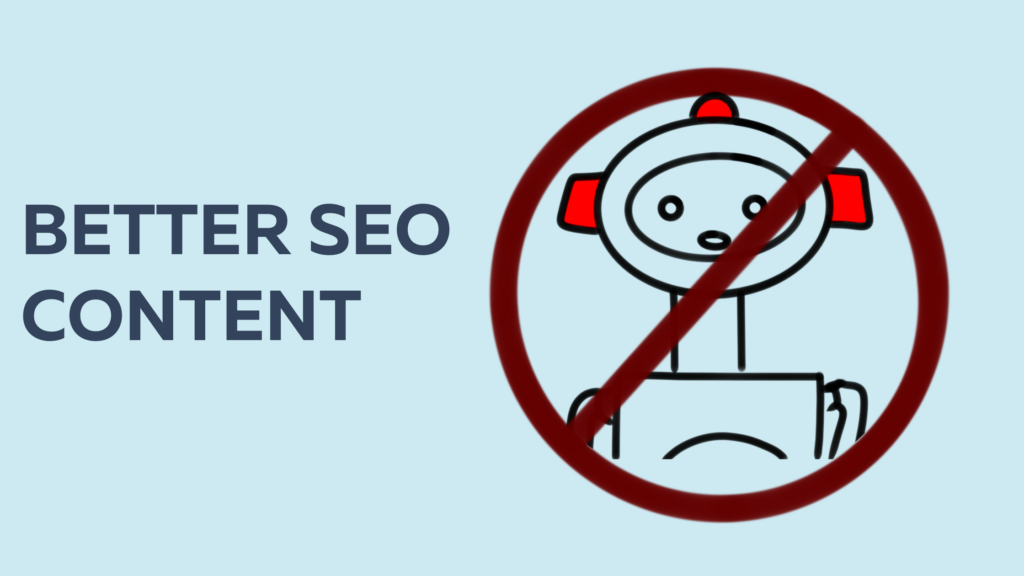If you’re seeking to write SEO content for your business or brand, you want two things.
1. Discoverability
2. Distribution
Both are critical needs to grow your business. But what about your content? You waste valuable resources when you invest money into SEO, and visitors bounce off your page after a few seconds because the content is made for a search engine, not a human reader.
Content is getting worse with the rise of AI writing services and SEO optimization, putting keywords and discoverability as the number one priority.
We’ll explore how you can write effective SEO content without making the same mistake most people make on the internet (read further to find out what it is).
Do you know what I’m talking about?
Imagine you are reading the typical optimized article.
After a few short sentences, you’re sensing something strange. Things sound redundant. Every other sentence has awkward wording, and now you’re plowing through a field of words that aren’t intended for you. Then, it hits you.
Fixing the Big Mistake for SEO Content Writers: Stop writing for robots.
What’s the benefit of becoming discoverable if readers or viewers bounce off the page after reading horrible content?
Bad SEO writing is prevalent with long-tail keyword phrases when writers say things like, “Cooking with garlic is an essential ingredient. Chicken tastes better when I am cooking with garlic.” It’s distracting and forced, and it’s why SEO writing should be a tool for discoverability and not the focus that drives good content.
Thankfully, there is a way that we can take advantage of content marketing SEO.
We can write great content that readers love– the type of content that motivates them to learn more about you and make a purchase or decision; while maintaining that integrity, we can implement an SEO strategy to become discoverable on search engines and increase traffic.
Research Real People
Before you look at a list of keywords, connect with people in your audience that can provide complete insight. Often, they’ll reveal a need that SEO marketers haven’t even recognized (like search intent).
The easiest way to start is by reviewing customer complaints, praise, and common questions. These are perfect opportunities to offer value through content.
For example, if your company (say a B2B SaaS) has a common complaint about poor onboarding, you could solve the problem and then write about it. You aren’t the only one facing the pain; visitors are looking for an answer.
Or, let’s say you own an online bookstore. You review a Subreddit focused on books. One user posts about how annoying award stickers are on the cover of a book. It hit a nerve, evident with almost nine thousand upvotes and four hundred comments.

After reading the post, you think of a way you can help these readers. You experiment and find the best method to remove a sticker without damaging the cover. Now it’s time to write about it with a solid SEO plan.
You can find a list of the best keywords related to your book sticker problem. One of the keywords becomes part of your title. Then, once you’ve written it, you can publish it so it can be discoverable on search engines.
But it doesn’t stop there. You need to build backlinks and control the success of your content.
Since you now have a proven audience that deals with the problem (thousands of them), you can post the article in the same thread with a condensed written solution in the comments. You’ll help drive traffic to the page and increase your chances that someone will reference it somewhere online.
Once you’ve published and distributed your SEO content, you can work on a backlink campaign to strengthen the page.
Writing SEO Content Starts with the Value
In our example with a book-reading audience, we emphasize the importance of a value-first strategy. We identified a need within the market and delivered a solution. SEO research served as a reinforcement, supporting the value that exists on its own.
When we pick several keywords and focus on landing those phrases within content, we miss the point of content in the first place. SEO should serve as a distribution support system, not the core product.
SEO that leads to poor content is a waste of money. But combine it with great content, and you’ll own a powerful marketing engine for your company.

Start with value, and then find the right keywords that fit your content. Help combat the instinct to focus on keywords more than content by asking yourself, “what do I want the reader to take from this?”
Are you looking for a high-quality content writer? Contact me for more information.


